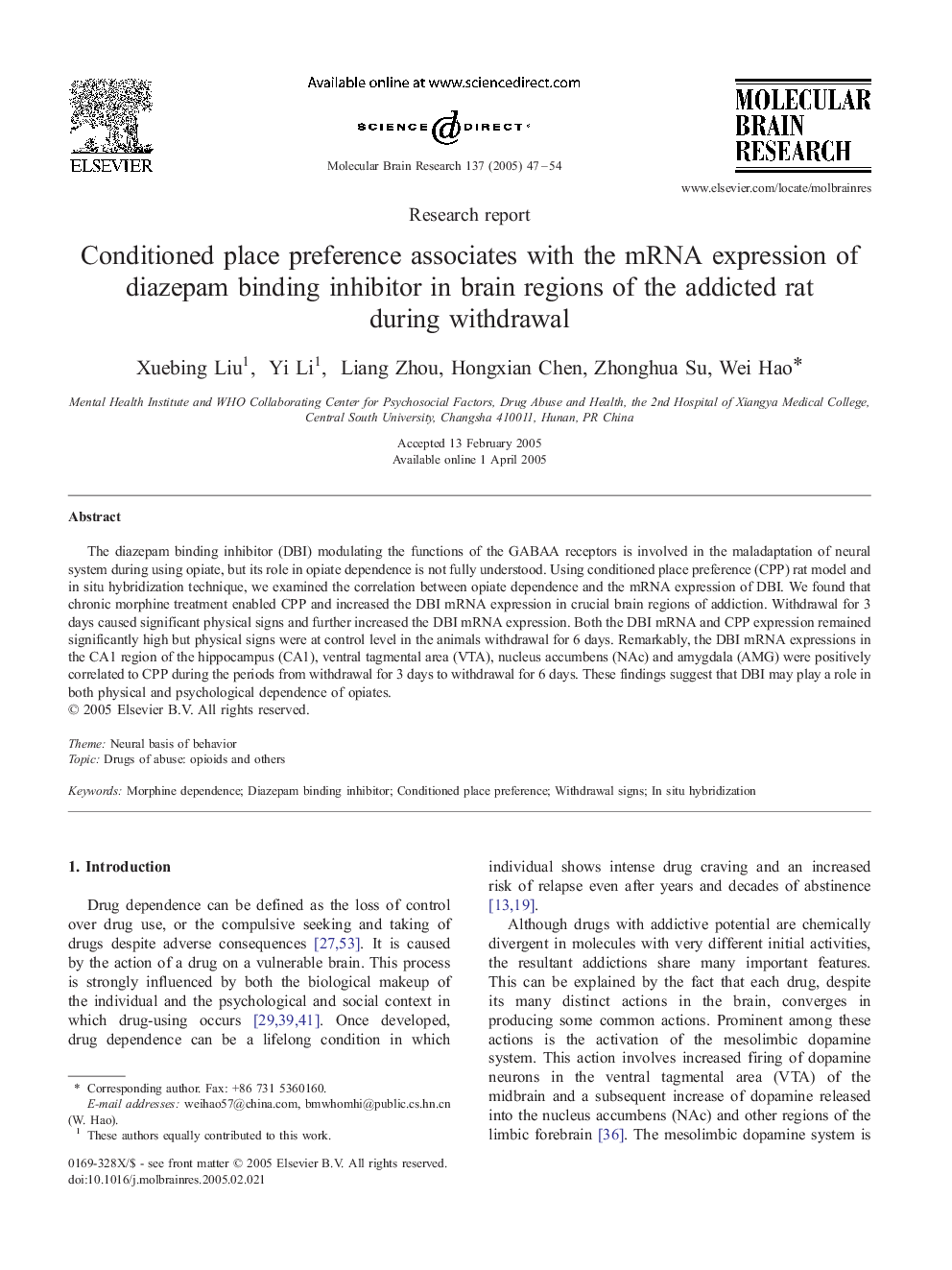| Article ID | Journal | Published Year | Pages | File Type |
|---|---|---|---|---|
| 9410758 | Molecular Brain Research | 2005 | 8 Pages |
Abstract
The diazepam binding inhibitor (DBI) modulating the functions of the GABAA receptors is involved in the maladaptation of neural system during using opiate, but its role in opiate dependence is not fully understood. Using conditioned place preference (CPP) rat model and in situ hybridization technique, we examined the correlation between opiate dependence and the mRNA expression of DBI. We found that chronic morphine treatment enabled CPP and increased the DBI mRNA expression in crucial brain regions of addiction. Withdrawal for 3 days caused significant physical signs and further increased the DBI mRNA expression. Both the DBI mRNA and CPP expression remained significantly high but physical signs were at control level in the animals withdrawal for 6 days. Remarkably, the DBI mRNA expressions in the CA1 region of the hippocampus (CA1), ventral tagmental area (VTA), nucleus accumbens (NAc) and amygdala (AMG) were positively correlated to CPP during the periods from withdrawal for 3 days to withdrawal for 6 days. These findings suggest that DBI may play a role in both physical and psychological dependence of opiates.
Keywords
Related Topics
Life Sciences
Neuroscience
Cellular and Molecular Neuroscience
Authors
Xuebing Liu, Yi Li, Liang Zhou, Hongxian Chen, Zhonghua Su, Wei Hao,
